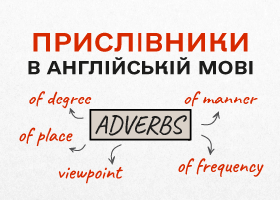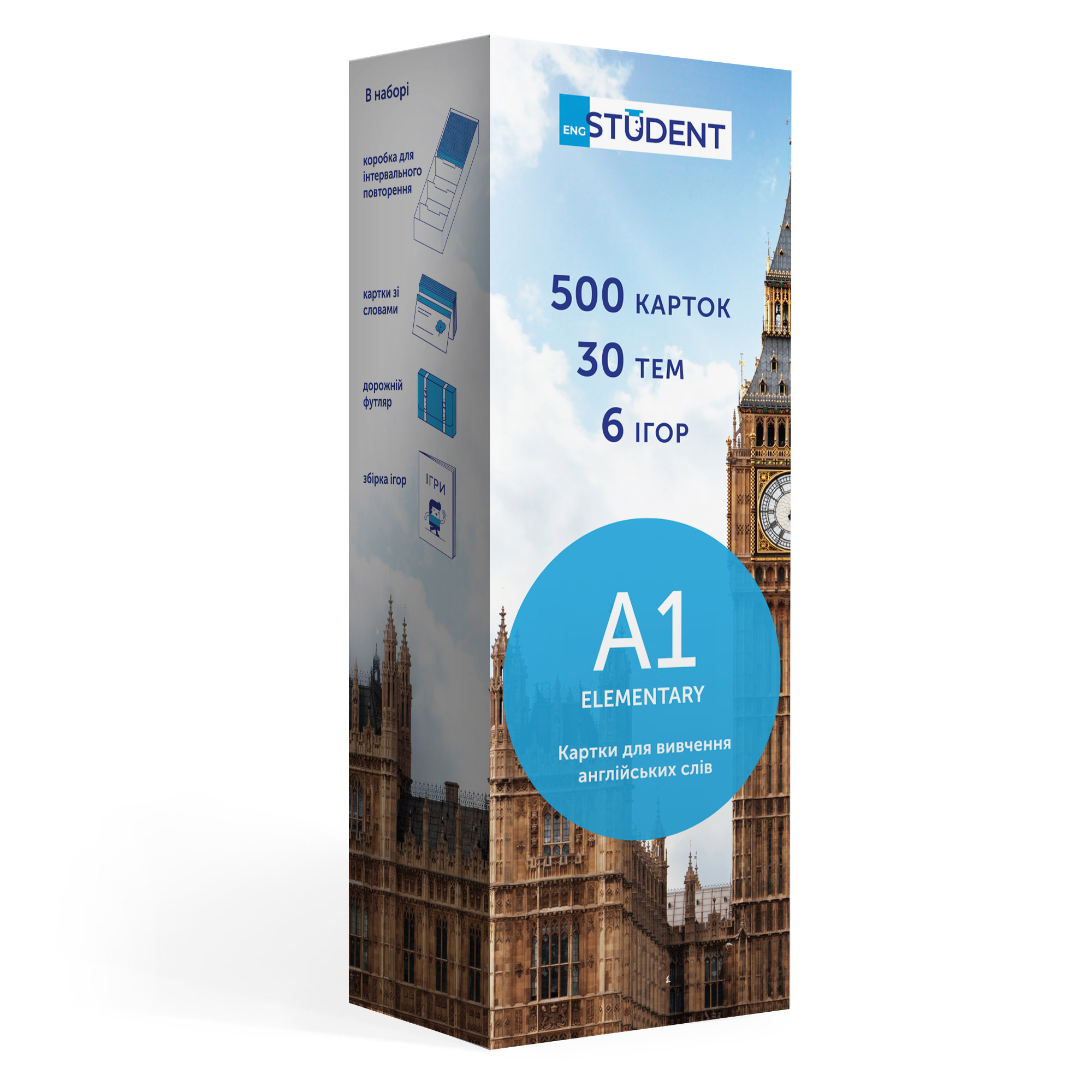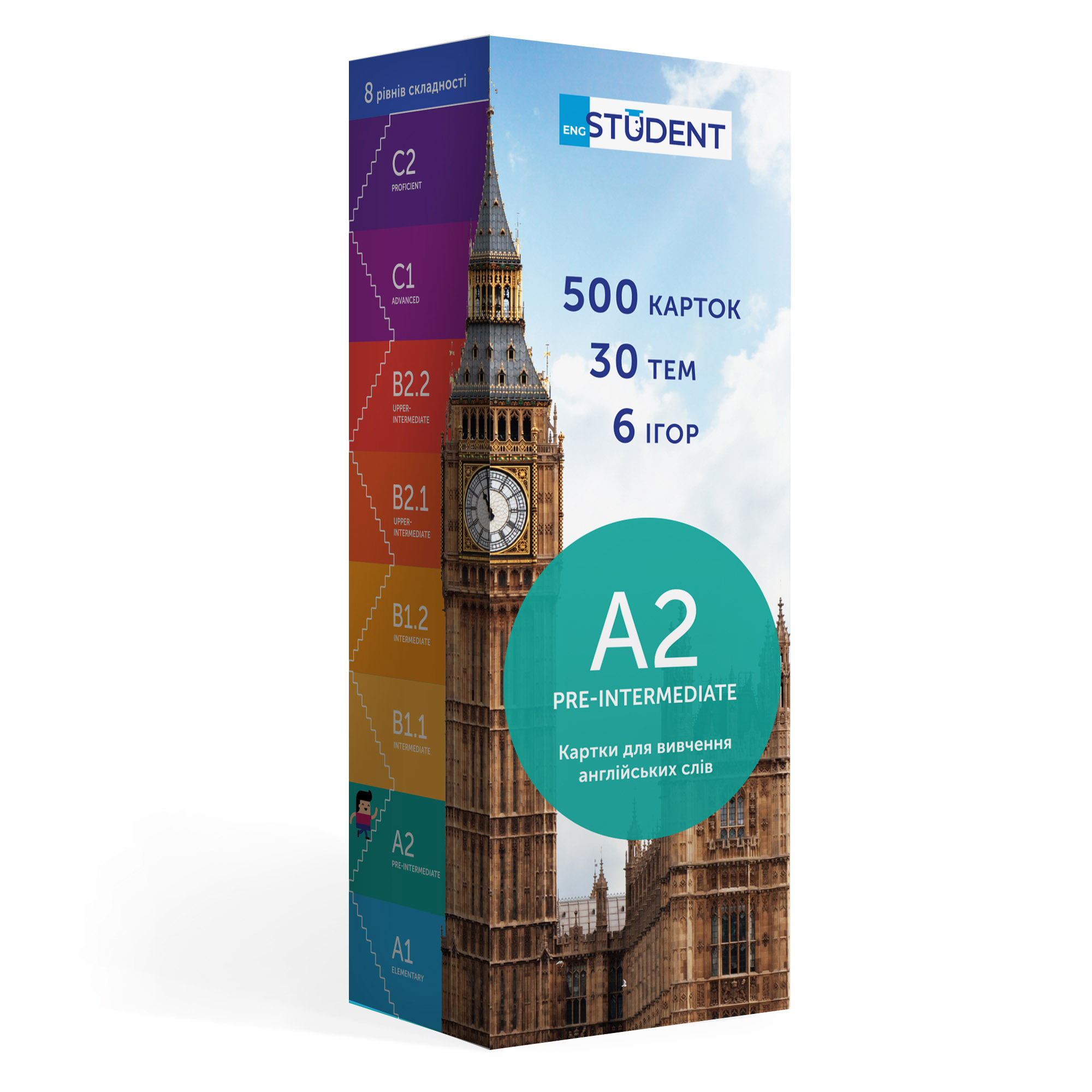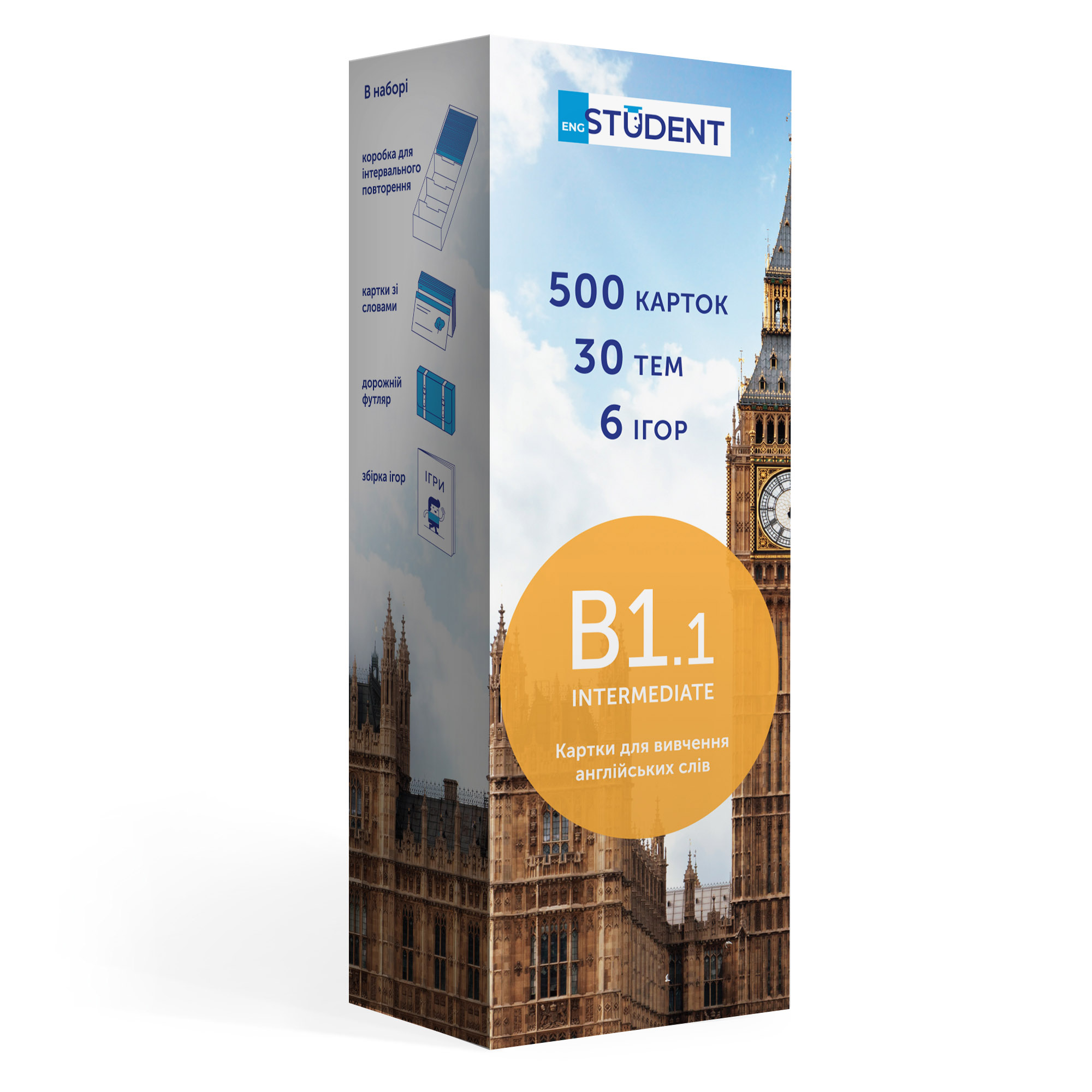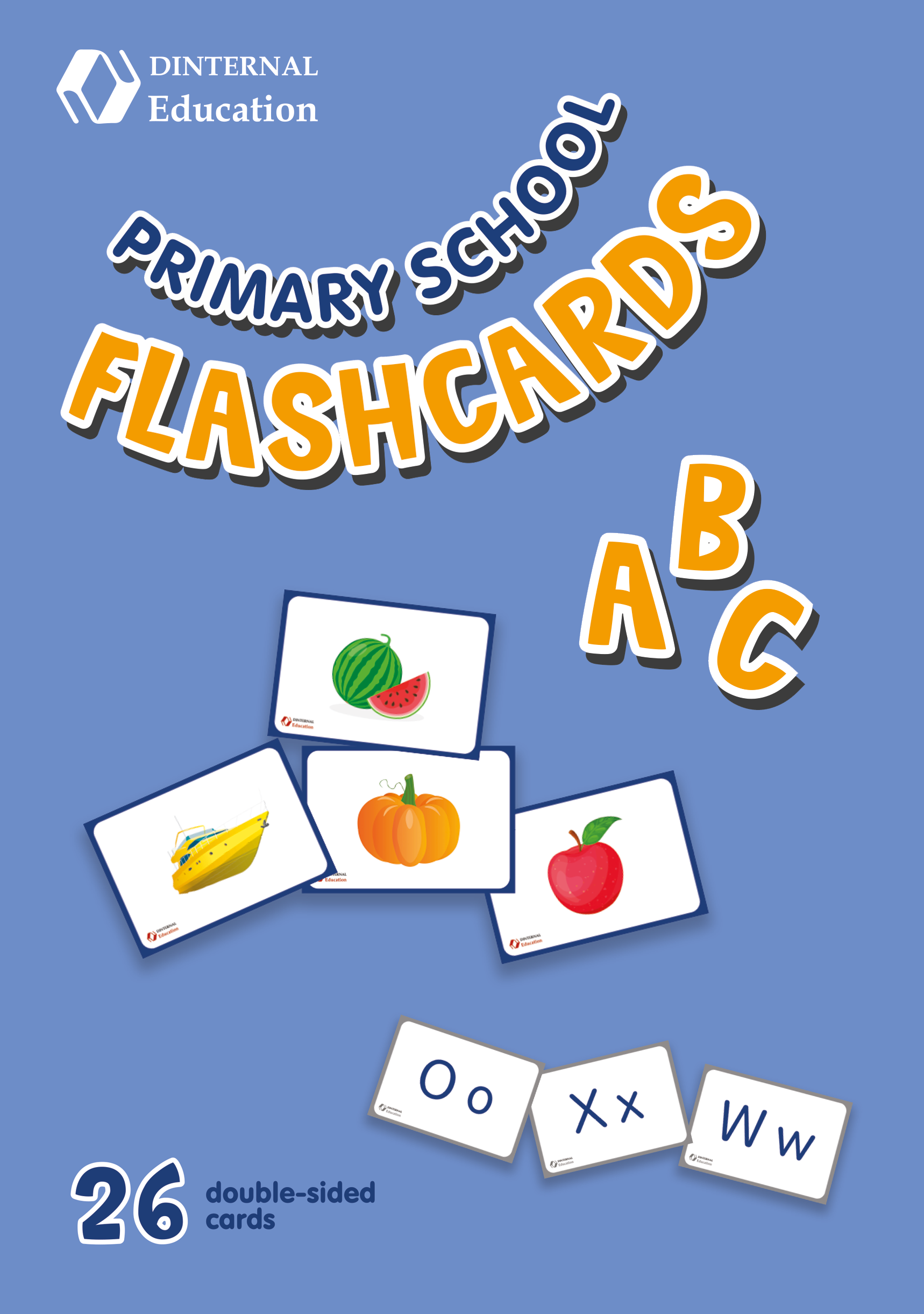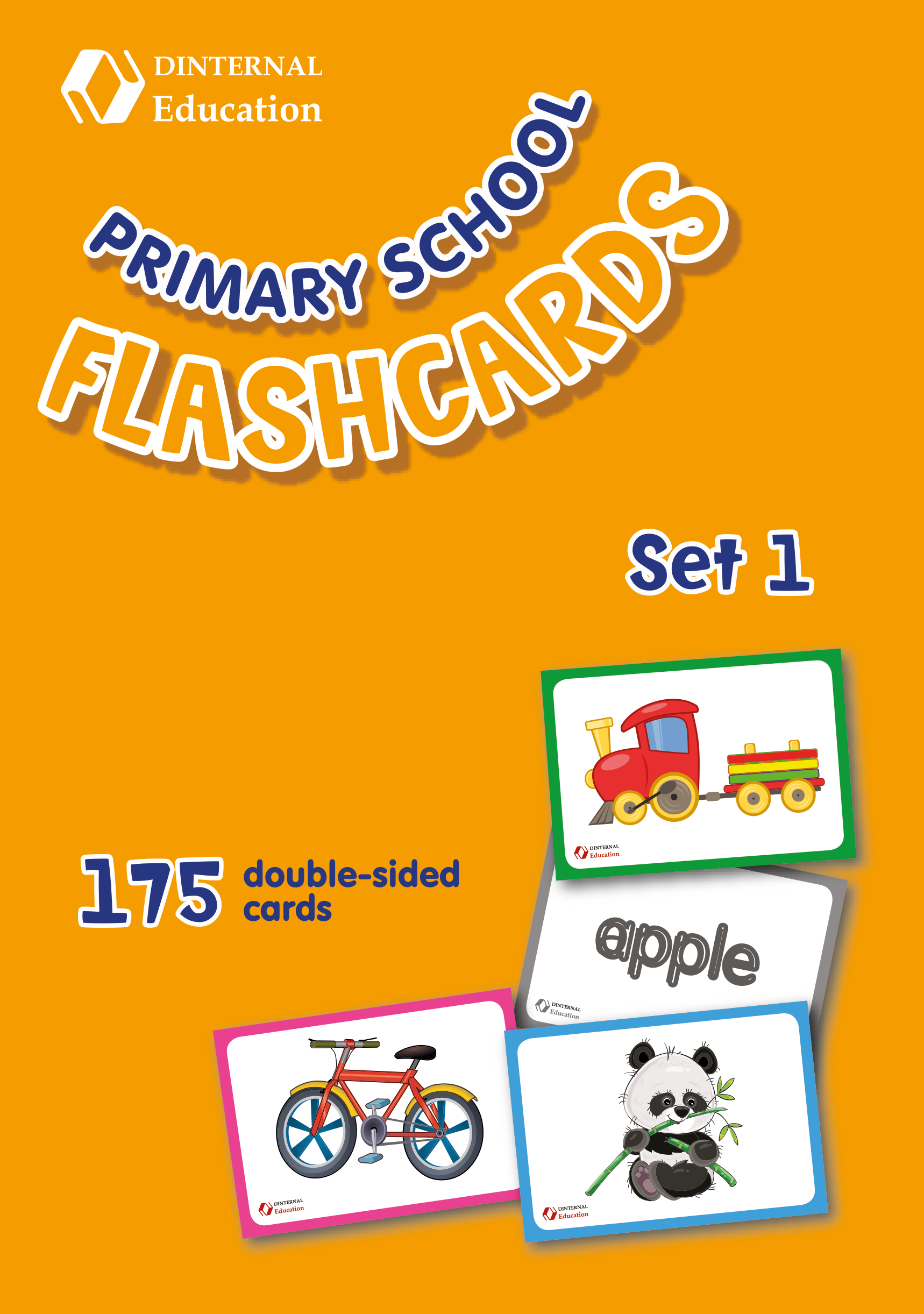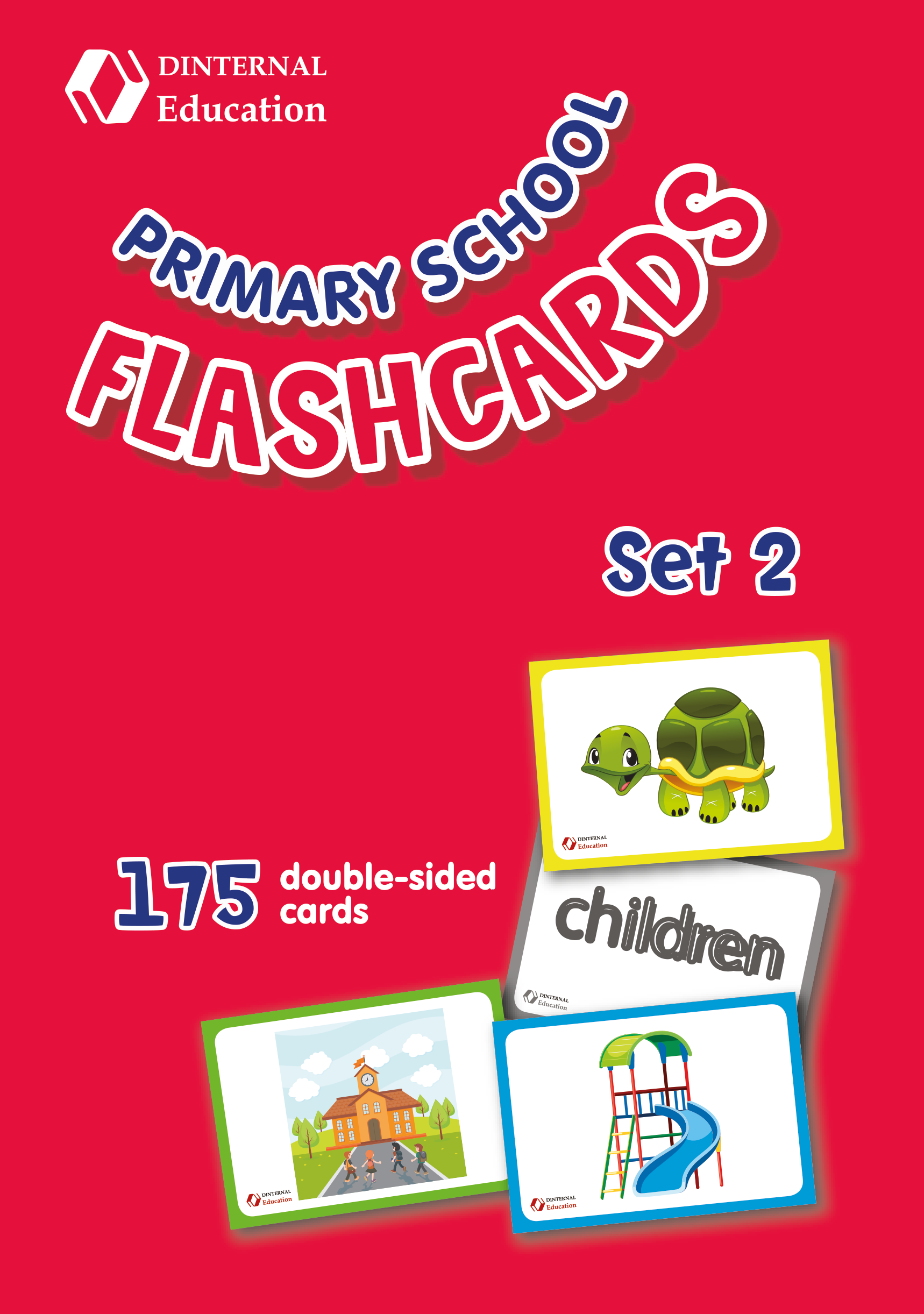Learning and memorising words in English
Oleksandra Kulish
Book expert
Memorising words is one of the most important aspects of learning English. It helps you expand your vocabulary, express your thoughts more clearly, and understand other people's speech easily. Various techniques are used to memorise words, which will be discussed in this article.
What is the best way to learn how to memorise English words?
To make memorising words when learning English effective, you don't need to focus on one particular method, but rather use a combination of several methods. So how do I learn English words?
For example, use the method of repeating words regularly. To do this, you can repeat the words at certain times, for example, when you return from work or school. The words can be grouped into categories, e.g. 'food', 'work', 'travelling'. From each category, use several words at a time to create a thematic link between them. If a word is forgotten, the other names in the category will help you remember it.
Simple repetition helps to learn a word, but difficulties may arise when using it. Therefore, it is better to use several methods at once: not only repetition, but also, for example, learning a word in context, when you can relate it to a real situation.
The associative technique, where you think of an image for each word, is a very good way to memorise English words. For example, if you need to learn the word 'train', you can imagine yourself travelling in a warm train with a cup of coffee. As an extension of this method, you can draw a train on paper and label the image with the new word - this works particularly well for those with a strong visual memory.
You can memorise words using a long-established method that has proven its effectiveness - using stickers. You should write the words on them and the translation on the back and stick them all over the flat. Eyes will constantly bump into stickers with words, which will contribute to memorisation. You can also stick stickers to specific items, writing their name in English. This will create a visual association and the word will be easily ingrained in the memory.

How to memorise English words quickly?
To memorise English words quickly, you can use more intensive techniques that activate short-term memory. This helps you to memorise new information.
How to learn words in English quickly:
- When first learning a word, use associations. Imagine the object whose name you need to remember in vivid colours. If the word means an action, use your imagination to visualise it. If it is difficult to visualise the word, try to associate it with a particular piece of music, for example. Focus your attention on the new word for at least 30 seconds. Do not try to memorise many words at once.
- Repeat the words aloud several times. Break complex words into syllables and sounds. This will not only help you memorise them, but also help you learn the pronunciation quickly.
- Match synonyms and antonyms to the new words from your own vocabulary, associating them associatively. When repeating, you will be able to use familiar words to recall new ones.
- It is possible to study not individual words, but word combinations in which they are present. You can also make up little stories with new words or find rhymes for the words you are learning from your own vocabulary.
- If you use the repetition method, start each day by writing down the words on paper without looking in the textbook or other sources. Play all the new words from memory. Repeat the list of words aloud, recalling their order one after another.
Read literature in English to build up your vocabulary. Write out new words from the book and use the above techniques to memorise them effectively.
You can also use another quick way to learn English words more easily. If you have a good memory, organise a challenge such as "learn 10 words in 30 minutes". This increases motivation and a competitive spirit, which can help you remember words.
Methods of memorising English words
There are many methods of memorising English words, let's focus on the most popular ones:
- Associations, when a word is associated with some vivid image, sounds, people or animals.
- Repetition, when memorisation is based on interval memorisation of spelling and pronunciation. It is important to use all possible sensory channels - sounds, visualisation. Thanks to this method, you will remember the correct sound and spelling of a word.
- Mnemonics, where words are put into word combinations, short stories or poetic forms. In this case, their practical use is learnt more quickly.
- Cards or stickers with a picture of a word and its translation. A very effective method, thanks to which words are memorised on a subconscious level. By the way, this is a great method to help your child memorise English words.
- Reading texts in English not only helps you to learn new words and phrases, but also to understand their context. Through reading, you can quickly expand your vocabulary. This process is also more exciting if the book has an exciting plot. Also, reading in the original reveals the work in all its glory without distortion, which is often the case with translations.
- Games using English words. For example, doing crossword puzzles, taking part in quizzes and other word games. You can also play games from the "Hidden object" series, which help you quickly learn the names of objects. You can also listen to English speech and understand what you hear with the help of subtitles.
- Watching films, TV series, podcasts and shows in English with subtitles can help you learn the language.
- Attending online and offline language learning clubs. Live communication with native speakers helps to significantly improve pronunciation, relaxes you, teaches you to form sentences correctly, and is a powerful incentive to quickly memorise new words.
Another way to memorise English words effectively is to imagine yourself as a teacher. Try to explain the meaning of the word to the students, say it aloud, write it down. Try to make it as clear as possible. When you try to explain something to someone, you remember it better yourself.

5 ways to quickly memorise words in English
Much has been said above about techniques for memorising English words. Let's summarise by choosing the 5 most effective ones:
- Visualisation and associations. In this method, for each word, an image is selected, which you need to visualise in detail. For example, when remembering the word "elephant", you need to imagine an elephant, realise how huge it is, how loudly it stomps when moving on the green grass. The more unusual or realistic the association and its visualisation, the faster the word will be stored in the memory.
- Stickers and cards. A method proven by more than one generation of English language learners. It helps to memorise words on a subconscious level, associating them with images or objects.
- Repetition. Allows you to use different sensory channels for memorisation. You can repeat words throughout the day mentally, out loud, or by writing them on paper. If you put this process on a regular basis, the effect will be immediate. The main thing is not to try to memorise many words at once. It is also a good idea to categorise words. This method engages the short-term memory, making memorisation easier.
- Context. Remember words in the context of sentences or phrases. Linking them to a specific situation helps to consolidate them more firmly in your memory. Try to form sentences with these words yourself.
- Reading books in English. It is an opportunity to learn and learn new words, to see how to insert them correctly into vocabulary structures. It is a fascinating process when you not only learn something new, but also immerse yourself in the world created by the author. Find interesting books in English in our shop.

If you want to speed up the language learning process, use different methods at the same time. This will help you to progress quickly towards your goal.
Other news

312
0

Oleksandra Kulish
Book expert
30 January 2026

190
0

Oleksandra Kulish
Book expert
30 January 2026







